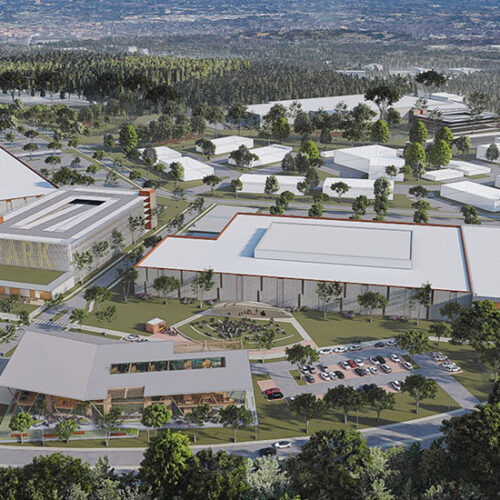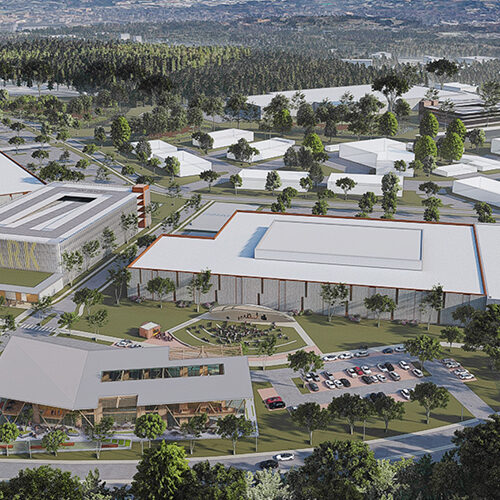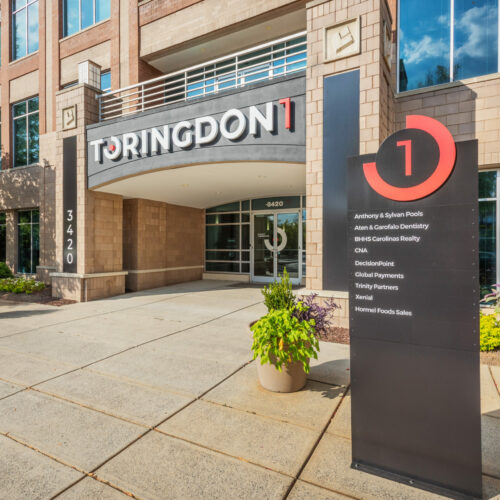Distressed loan deals pay off for Trinity Capital
November 28, 2012
By Will Boye
Charlotte Business Journal
Originally published November 9, 2012
Trinity Capital is looking for the next NASCAR Plaza, but that office tower’s turnaround story may be tough to replicate. Over the last couple of years, the real estate investment and development firm has focused on investing in what it calls “broken” capitalizations — office buildings saddled with loans that exceed the value of the properties.
When Trinity teamed with majority investor Rubenstein Partners to buy NASCAR Plaza in December 2010, the 390,000-square-foot building at South Caldwell and East Stonewall streets was 37% occupied and had gone into foreclosure after its owner defaulted on a $95 million loan in late 2009.After buying the building, Trinity and Rubenstein lowered lease rates and brought in new tenants including Chiquita Brands International Inc., which signed a 13-year lease for 138,000 square feet earlier this year.
Last week, real estate investment trust Parkway Properties Inc. announced it had agreed to buy the building for about $100 million. While Trinity executives won’t discuss what they paid for the property’s debt and equity, real estate sources say Trinity and Rubenstein’s purchase price was around $50 million. The property’s financing seems in line with that number. Trinity and Rubenstein secured up to $49 million in debt from Wells Fargo & Co. in early 2011.
“It rewards our investors for investing with us,” says Walker Collier, a partner at Trinity. “It’s nice for a deal that was bought in the middle of the downturn to come full circle.”
Trinity began investing in distressed loans in early 2010. The firm often acts as a local sponsor, teaming with larger investors such as Rubenstein, which provide the majority of the investment dollars. Trinity’s first distressed-loan deal in early 2010 involved the purchase of two loans secured by a 400,000-square-foot industrial property and 24 acres in the North Pointe Industrial Park in Hanahan, S.C., near Charleston. Trinity formed a joint venture with Urdang Capital Management to buy the $14 million in debt from Regions Bank for about $10 million and was ultimately paid off on the loan. But that happened only after Trinity dealt with an uncooperative buyer that put the properties into Chapter 11. The deal was ultimately profitable but involved extra legal fees and some sleepless nights.
“That was an education,” says partner David Allen, who formed Trinity in 2001 with Gary Chesson and Peter Conway. “It’s very expensive to acquire property via notes if all parties aren’t cooperating.”
After that experience, Trinity’s partners agreed to focus on deals in which they could work with the borrower and the lender toward a common goal.
“We want to be the solution to a lender that wants to sell the note and to the borrower that wants to move on and get off of their guarantee,” says Collier, who joined the firm in 2008.
Trinity initially focused on debt held by large commercial banks, such as Regions and Wells Fargo, which shared the debt on NASCAR Plaza.
The number of those problem loans held by larger banks is dwindling, Allen says, but there are still opportunities to buy debt that has been converted into commercial mortgage-backed securities. That’s what Trinity did when it bought the loan for the three-building Steel Yard at South End complex from special servicer LNR Partners for $7.5 million and then took ownership of the property via foreclosure. That complex was 62% occupied when a joint venture between Trinity and Urdang, the real estate investment arm of The Bank of New York Mellon Corp., acquired it in 2011. Trinity’s sister firm, Trinity Partners, took over office leasing and management, and the project is now 94% occupied.
Trinity also has formed a joint venture to buy three of the six buildings at the Toringdon office park in south Charlotte. Two of the buildings Trinity does not own were financed with CMBS debt and are now owned by special servicer LNR, which took control of the buildings after they went into foreclosure. Collier says good CMBS deals can be found, but the process is lengthier and more complex than dealing with banks. The distressed real estate market is gradually getting smaller, according to research firm Trepp, which tracks the performance of CMBS loans. In October, the U.S. CMBS delinquency rate fell to 9.69%, down from 9.99% in September and 9.77% a year ago. “Nationally, the distressed-assets pipeline is slowly but surely getting cleaned up,” says Joe McBride, an analyst with Trepp.
Trinity is preparing to close on its third fund dedicated to buying problematic real estate, improving it and ultimately selling it at a profit within six years. The $35 million fund will be the largest the firm has raised, and the firm will continue to target Southeastern markets. Trinity’s partners say they aren’t worried about where they’ll find their investment opportunities, or how prices in markets such as Charlotte will be affected by investors looking for greater yield than they can find in gateway cities such as New York or San Francisco.
“That’s a two-sided coin,” Allen says. “If there’s more capital flowing into the market, our back end may be better, so we may pay a little more on the front end.”
The new capital sources include Parkway, which approached Trinity with an unsolicited offer for the NASCAR Plaza tower in June — the month Chiquita’s new logos were unveiled at the building. The $99,999,999 offer was compelling enough, Trinity executives say, that they didn’t feel the need to market the building to other potential buyers. Over the next two years, Trinity will be looking to sell — or “harvest” — a number of properties it acquired through its second fund. Typically, Trinity expects to hold a property for three to five years. NASCAR Plaza, Allen says, was an unusually short hold. “On this one, the harvest came up much quicker than we thought.”



